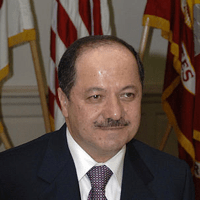Observers around the world are glued to their TV and computer screens, barely able to keep pace with popular protests seizing one Middle Eastern country after another and changing the Arab world for good. Yet, largely ignored by Western media, the revolutionary wave of the "Arab Spring" has also reached the autonomous Kurdistan Region in Iraq, where it could have the dangerous side effect of plunging the whole of Iraq back into sectarian violence at the very moment the last American troops are scheduled to leave.
Unsurprisingly, the popular protests originated in Sulaymaniyah, Kurdistan's most secular and liberal city, where thousands have rallied in the streets for 37 straight days. The protest movement has called for political reform and improvements in public services and living conditions, while also condemning the regional government's rampant corruption. The demonstrations not only mirror those in Egypt and Tunisia in their objectives, but also in their composition -- mostly educated youth and a noticeably large number of women; organization -- through text messaging and social networking sites; and the symbols they use. Kurdistan's version of Mohamed Bouazizi, the unemployed street vendor whose self-immolation sparked the revolution in Tunisia, is Rezhwan Ali, a 14-year-old protester who was fatally shot by security forces on Feb. 17, when demonstrators tried to storm the headquarters of the ruling Kurdistan Democratic Party (KDP). Since then, "We are all Rezhwan," has become the rallying cry for protesters seeking the ouster of the government and early, transparent elections.
Since the formation in 1998 of a U.S.-brokered power-sharing arrangement between the KDP and the Patriotic Union of Kurdistan (PUK), the erstwhile rival clans of Kurdistan Regional Government (KRG) President Massoud Barzani and Iraqi President Jalal Talabani have lorded over the semi-autonomous region in northern Iraq. The KRG, a key U.S. ally in the 2003 invasion and occupation, is a unique security and economic success for Iraq. Since 2003 it has been an island of prosperity, largely untouched by the traumatic violence ravaging the rest of the country, with not a single foreigner killed there.

